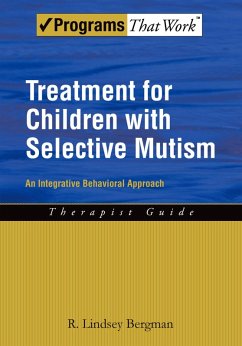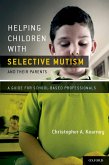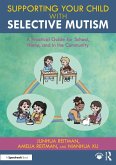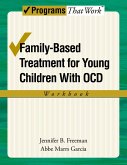Selective Mutism (SM) is an impairing behavioral condition in which a child fails to speak in certain social situations despite speaking regularly and normally in other situations. SM presents a significant mental and public health problem due to impact on the social, emotional, and academic functioning of young children at a critical point in their development. SM is closely related to childhood social phobia, but it cannot be treated in the same way because of the young age of the children affected, their lack of speech in the treatment setting, and the need for significant school involvement in treatment.
Treatment for Children with Selective Mutism outlines the sequence and essential elements to guide clinicians through a comprehensive, integrated program for young children who display symptoms of SM. This approach utilizes behavioral interventions targeting gradual increases in speaking across settings in which the child initially has difficulty. The integrated nature of the therapy refers to the goal of incorporating input from the clinician with that from the parents and teacher, as well as others impacted by the lack of speech. Exposure exercises are based on behavioral techniques such as stimulus fading, shaping, and systematic desensitization that also allow for a less intense or gradual exposure to the speaking situation. These techniques are combined and used flexibly with a behavioral reward system for participation in treatment. The approach was developed by Dr. R. Lindsey Bergman as part of the UCLA Childhood OCD, Anxiety, and Tic Disorders Program. The treatment protocol consists of 20 sessions, 60 minutes each, delivered over the course of 24 weeks.
Treatment for Children with Selective Mutism is an invaluable guide for mental health professionals who deliver CBT-based treatment to children and want to help those with SM.
Dieser Download kann aus rechtlichen Gründen nur mit Rechnungsadresse in A, B, BG, CY, CZ, D, DK, EW, E, FIN, F, GR, HR, H, IRL, I, LT, L, LR, M, NL, PL, P, R, S, SLO, SK ausgeliefert werden.









